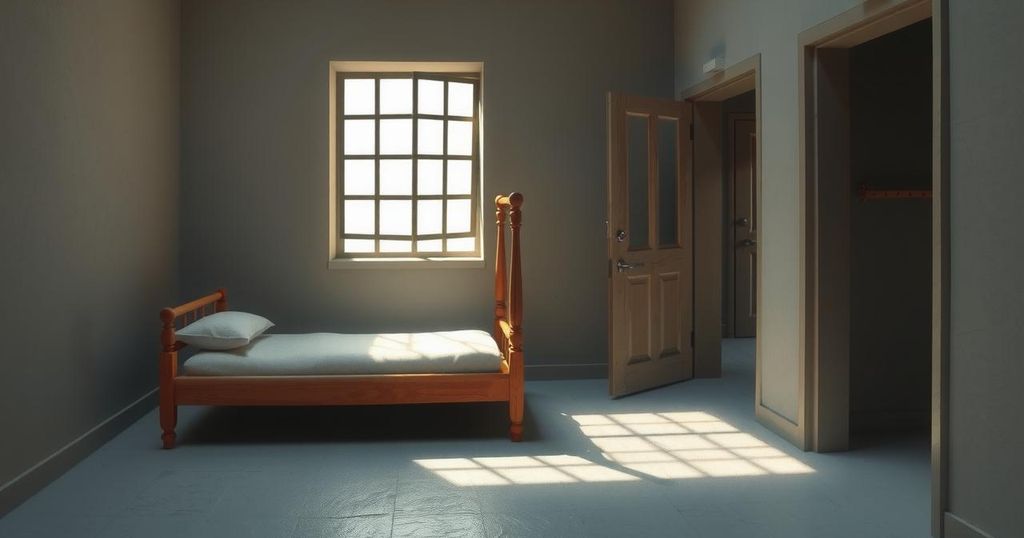Rodrigo Duterte’s Custody: Political Alliances and Legal Repercussions

Rodrigo Duterte, former president of the Philippines, was taken into custody upon arrival in Manila due to an ICC warrant linked to his anti-drug campaign. His arrest follows a political alliance with the Marcos family, which has since deteriorated, leading to political repercussions. The implications for familial power dynamics and upcoming elections remain uncertain as Duterte’s popularity continues to pose challenges for the current administration.
Rodrigo Duterte, the former president of the Philippines, recently found himself in custody upon returning to Manila from Hong Kong. The police apprehended him due to a warrant from the International Criminal Court (ICC), which had been executed by the Philippine government swiftly. Duterte, who appeared frail and required a walking stick, was transported to an air force base as arrangements were made to send him to The Hague.
Initially celebrated for his tough stance against crime and drugs, Duterte’s downfall raises questions about how a once-powerful leader faced such legal challenges. His legal team asserted that the arrest lacked legal grounding and indicated concerns about his deteriorating health. During his presidency, Duterte had aligned himself politically with the Marcos family, intending to secure protection from repercussions related to his controversial rule.
In the 2022 elections, Duterte’s daughter, Sara, successfully became vice president alongside Ferdinand Marcos’s son, Bongbong, who assumed the presidency. Their alliance aimed to strengthen their political positions, ensuring Sara could position herself for future presidential aspirations. This partnership, however, did not shield Duterte from ongoing investigations concerning alleged extrajudicial killings associated with his anti-drug policies.
Despite withdrawing from ICC jurisdiction in 2019, the court maintained the right to investigate activities occurring prior to this withdrawal, resulting in an inquiry into Duterte’s actions. Relationships between Duterte and the Marcos administration soured after Sara’s request for the defense ministry was denied. Marcos distanced his presidency from Duterte’s previous policies, emphasizing a desire for a more moderate governance style.
As tensions escalated, political calculations became evident. Sara Duterte was facing an impeachment petition from the Marcos-controlled Congress, placing her future political ambitions in jeopardy. The implications of her potential impeachment would significantly diminish the Duterte family’s political influence.
President Marcos’s actions against Duterte may appease some political factions, yet they risk provoking considerable backlash from Duterte’s supporters. Sara Duterte has vocalized her belief that her father’s arrest is an infringement on Filipino sovereignty. Upcoming mid-term elections in May will serve as a critical indicator of the continuing political clout of both families.
President Marcos defended his actions regarding Duterte’s extradition, asserting compliance with international obligations. However, he refrained from explicitly acknowledging the ICC warrant’s nature, reflecting a potential public apprehension about the court’s legitimacy in the Philippines after the country’s withdrawal. For the ICC, securing Duterte’s presence in The Hague could enhance its reputation amidst geopolitical complexities and a generalized reluctance among nations to comply with its requests.
China’s caution against politicizing ICC cases underscores the intricate balance between accountability and national dynamics in the Philippines, highlighting the case’s role in local political disputes.
Rodrigo Duterte’s recent arrest marks a significant turn in Filipino politics, illustrating the complexities of power and alliances within the country. Despite his prior influence, the unraveling of the Duterte-Marcos alliance has led to serious legal repercussions for the former president, elevating a crucial domestic conflict. The outcome of the mid-term elections will be pivotal in determining the political landscape and public sentiment towards both Duterte and Marcos, alongside the role of the ICC in this evolving narrative.
Original Source: www.bbc.com







